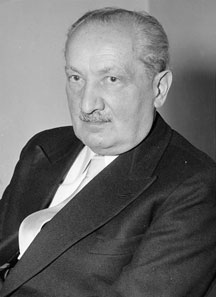
The basic idea of ‘Being and Time’ by German philosopher Martin Heidegger is extremely simple: being is time. That is, what it means for a human being, to be is to exist temporally in the stretch between birth and death. Being is time and time is finite, it comes to an end with our death.
Therefore, if we want to understand what it means to be an authentic human being, then it is essential that we constantly project our lives onto the horizon of our death, what Heidegger calls “being-towards-death”.
Our everyday existence is characterized by complete immersion in the ways of the world. The world fascinates us and my life is completely caught up in its rhythms and activities. The question Heidegger asks is how is the being-in-the-world as a whole to be disclosed? Is there an experience where the world as such and as a whole is revealed to us?
Is there a mood in which we pull back from the world and see it as something distinct from us? Heidegger’s claim is that being-in-the-world as a whole is disclosed in anxiety and is then defined as care. As such, anxiety has an important methodological function in the argument of Being and Time.
The first thing to grasp is that anxiety does not mean ceaselessly fretting or fitfully worrying about something or other. On the contrary, Heidegger says that anxiety is a rare and subtle mood and in one place he even compares it with a feeling of calm or peace. It is in anxiety that the free, authentic self first comes into existence.
In order to understand what Heidegger means by anxiety, we have to distinguish it from another mood he examines: fear. His claim is that fear is always fear of something threatening, some particular thing in the world.
If fear is fearful of something particular and determinate, then anxiety is anxious about nothing in particular and is indeterminate. If fear is directed towards some distinct thing in the world, spiders or whatever, then anxiety is anxious about being-in-the-world as such. Anxiety is experienced in the face of something completely indefinite. It is, Heidegger insists, “nothing and nowhere”.
Heidegger’s claim earlier is that the human being finds itself in a world that is richly meaningful and with which it is fascinated. In other words, the world is homely, cosy even.
In anxiety, all of this changes. Suddenly, I am overtaken by the mood of anxiety that renders the world meaningless. It appears to me as an inauthentic spectacle, a kind of tranquilized and pointless bustle of activity. In anxiety, the everyday world slips away and my home becomes uncanny and strange to me. From being a player in the game of life that I loved, I become an observer of a game that I no longer see the point in playing.
What is first glimpsed in anxiety is the authentic self. As the world slips away, we obtrude. Everyday life in the world is like being immersed in the sea and drowned by the world’s suffocating banality. Anxiety is the experience of the tide going out, the seawater draining away, revealing a self stranded on the strand, as it were. Anxiety is that basic mood when the self first distinguishes itself from the world and becomes self-aware.
Anxiety does not need darkness, despair and night sweats. It can arise in the most innocuous of situations
Anxiety is the first experience of our freedom, as a freedom from things and other people. It is a freedom to begin to become myself. Anxiety is perhaps the philosophical mood par excellence; it is the experience of detachment from things and from others where I can begin to think freely for myself.
Martin Heidegger (1889-1976) was a German philosopher and a seminal thinker in the Continental tradition. Simon Critchley is an English philosopher currently teaching at The New School.
Simon Critchley






